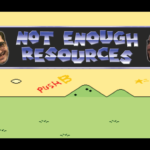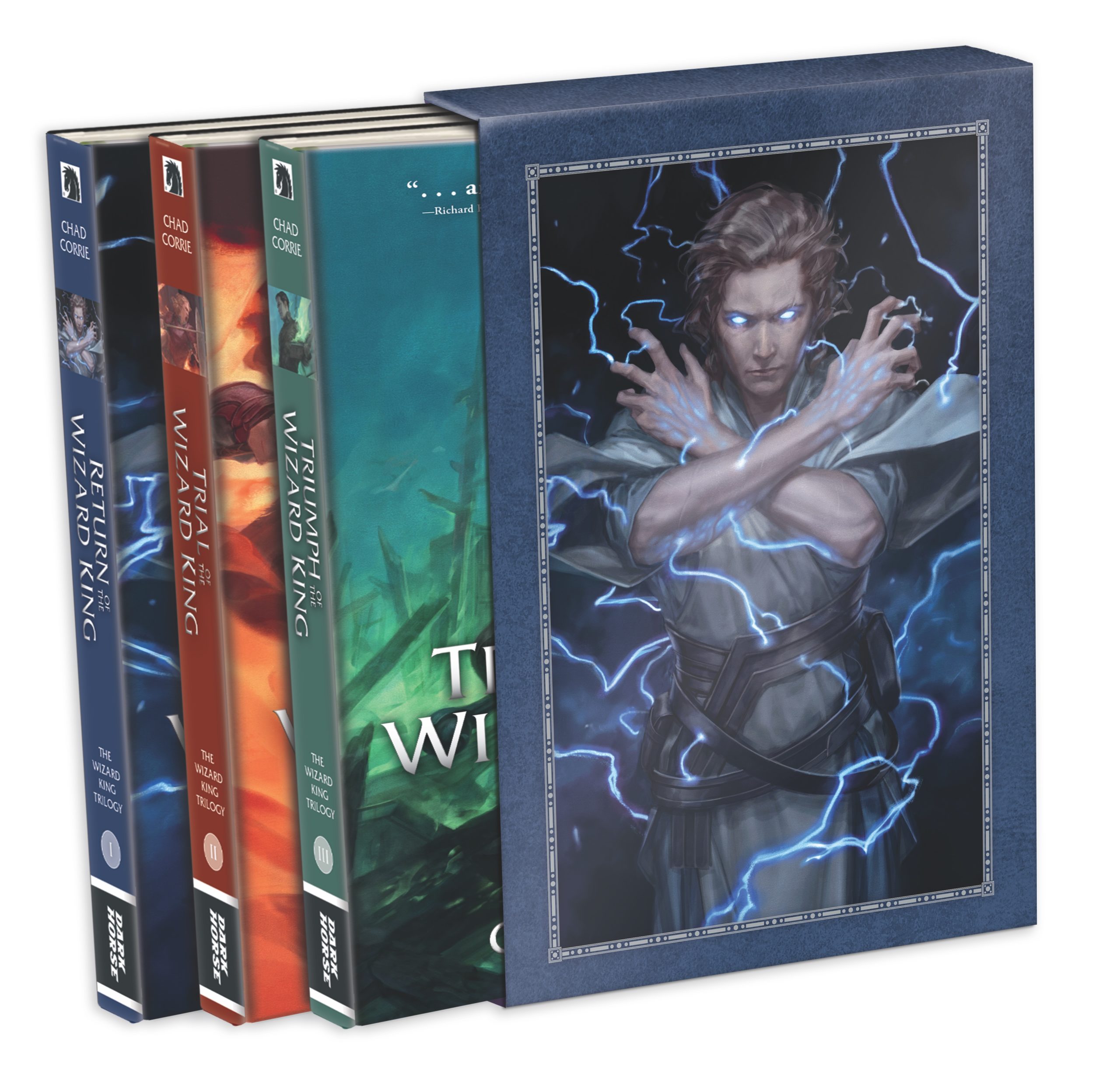
Chad Corrie is the author of the Wizard King Trilogy, a high-fantasy series set in a world “rich in history, faith, and tales of adventure-of which this story is but one of many.” We recently had the opportunity to sit down and chat with Mr. Corrie to discuss his career, his influences, and the newly-released trilogy box set.
GEEK’D OUT: What started you down the path of becoming a writer?
CHAD CORRIE: Short version: When I was twelve I was looking for a job in which one didn’t really have to do any work but still get paid plenty of money, and I thought writing was the perfect option. Little did I realize then just how opposite such a notion was.
Longer version: I’ve always enjoyed creating things and so it seemed the next logical step to begin developing stories and worlds and such. Over the years I’ve found an interest in writing in the fantasy genre mainly and then both in prose and comic formats. And the more I worked on things the more addicting (and often rewarding) it became, which just fueled the drive to do more…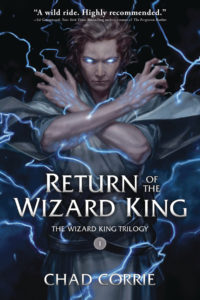
G.O: What inspired you to create this world and its characters?
C.C: Iactually get pretty in-depth on this in the first three episodes of my podcast, Tralodren: Behind the Scenes. We talk about the genesis, middle years, and current timeline with the world. So for those who are interested in that sort of thing feel free to check that out wherever podcasts are available.
For the shorter answer I think, in general, the basic concepts for something like Tralodren was developed over my childhood. The 1980s and early 90s were a pretty big time for fantastical material. And then you add in video games and other things that were also taking off at that time, which further helped provide ideas and concepts I’d get to create later in this and other world settings.
G.O: What are some of the most important things you’ve learned while crafting your trilogy or writing in general?
C.C: It’s important to have a plan to your story when you write. At first I wrote more as I went and that worked somewhat for the first book but it made a mess of things later on in books two and three. I had so many things that came up I had to go and set up in book one or tweak in later books based on what already happened, etc. So having a plot—or even a less rigid guideline to follow—can go a long way to help keep you and the story on track.
Also, it’s important to finish a whole story before you go back and assess it. You learn a lot finishing your work you won’t be able to attain in most other ways. And it helps you in future efforts, actually making it easier to finish the next work and the next as you catch more things and gain more skill and polish in the process.
G.O: Do you have a character that identifies as your favorite, or one that you are most proud of?
C.C: I don’t really have a favorite character in the series, though each certainly has their moments as the story progresses, which I rather enjoyed seeing unfold. Though several readers in the past have told me they have enjoyed Dugan in particular. He seems to be the stand out to many—for various (and perhaps some obvious) reasons. I’m sure others will have their own favorites I’ll be learning about in the future—maybe even thanks, in part, to this boxed set.
G.O: What are some of the challenges you’ve encountered, either during the writing process or after?
C.C: Some of the most challenging things can be issues of time management—deciding what’s important and what to tackle first. This can especially be true when you have a certain deadline or something that suddenly pops up you weren’t expecting. Now you have to balance getting what you planned for that day/week completed as well as seeing to this new matter that’s risen to the forefront of your attention.
G.O: For emerging storytellers looking to work in the creative field, what sort of advice would you give?
C.C: Much of the advice I could or would give can be found on the Writer’s Desk page of my website (chadcorrie.com/writersdesk.html). It covers a wide range of topics I have found myself getting asked a lot over the years as well as things I’ve learned myself through various means and methods.
That said, generally speaking, I’ve learned that it’s wise to get a basic understanding of the business—how publishing works—and how the basic structure of publication deals are implemented. That is, how advances work, certain terms in contracts to look out for, how royalties work, that sort of thing. It’s also wise these days to get a basic handle on how to set up signings or events as well as gain some inkling of using social media and websites for promotional and other efforts.
More and more publishers either don’t have the time or resources or both to help many authors when it comes to marketing and public relations matters. So having at least a working knowledge of the process and how you can supplement what your publisher may provide or how best to take on the work yourself or even hire a third party to help, can go a long way on that front.
G.O: Now, onto the more fun questions! If you had to pick your favorite two movies, what would they be, and why?
C.C: Probably “Amadeus” and “The Adventure of Baron von Munchausen”. There was a time in my life I would watch them at least once a year. I’ve taken a break for the last few years, but they were the films I would come back to most often. Not that I didn’t watch other things or like them but for me “Amadeus”, while not entirely historically accurate, served as a morality play and reminder to myself to be thankful for my own giftings/talents/skills and not look toward others with an envious eye. And “The Adventures of Baron Von Munchausen” reminded me to keep my imagination and a child-like sense of wonder and creatively no matter my age or whatever situation I may find myself.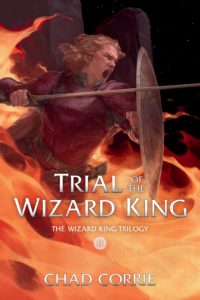
G.O: When you’re in the zone, creatively, do you have any rituals or preferences that you need, like for example, background music, a particular beverage or snack, anything?
C.C: Nope. I’m pretty simple that way. I just need to have a place to write and then I can get to it. I prefer having a quiet background in which to work but I’ve found I can make do in other situations if I have to.
While I can’t speak for others, I’ve found the more practiced I get at creating and writing the more into the flow I can stay as well as recognize the rhythms of things. So I know when would be a good time for a break, when I needed to head to the computer to write things up or just grab a pen and notebook, etc.
Of course, most writers will probably tell you they’re always writing. Doing things in the back of their mind while mowing the grass, washing the clothes, making meals, etc. It can be a fairly ongoing process at times.
G.O: What writers, current or historical, had profound influences on you and your work?
C.C: Oddly enough, I grew up not really being that into writing or reading. That would change in my teenage years when I eventually would encounter a collection of authors who introduced me to the fantasy genre. Some of these were: Robert E. Howard, H.P. Lovecraft, Michael Moorcock, Stephen King, Anne Rice, Margaret Weis and Tracy Hickman. And then there were plenty of comic books through the years with their many varied writers and creative teams.
G.O: If you had the chance to work on a dream project, what would that be, or have you already done it?
C.C: You know, I don’t know what a dream project would be right now. I’ve been so focused on my own stuff of late I haven’t really given anything else much thought. Though, I’m sure, if something did pop up that piqued my interest I’d certainly be open to giving it a look.
**MILD SPOILERS** G.O: The Wizard King Trilogy features a number of important characters meeting their doom much sooner than expected. These deaths certainly suit the narrative but did you intend for any of these to be presented as shock value and did you consider giving someone a reprieve?
C.C: Without giving away too many spoilers for those who might not have read the series just yet, in the beginning the idea was to have The Wizard King Trilogy have some deaths of the characters in it. As I’ve been alluding to in previous answers I grew up in a time when stories always had the good guys win and they never really took any serious hits along the way. There was never any real sense of threat to their lives or actions.
And then you had comics and other venues at the time getting into what’s more common now with heroes and villains dying and then coming right back again, thus cheapening their former death, and again, taking away any real threat/consequences to their lives or actions.
So, with what I write—especially with The Wizard King Trilogy—I wanted to have some folks get killed along the way to help add to the gravity of their challenges—maybe have them even revaluate these goals to see if they’re still worth pursuing. Conflict, after all, is story, and that was what I wanted to have resonate in parts of the series.
Now, in terms of who exactly should die that did go back and forth a little in the beginning, but as the story solidified it became clear who needed to go and maybe who else should come close. But even in death, the characters still weren’t entirely missing from the story and could be used to finish the tale (as readers will discover as the trilogy progresses).
G.O: Do you prefer Star Trek or Star Wars (or something else)?
C.C: I’ve always leaned more toward Star Wars, myself. Perhaps it had something to do with the it being more science-fantasy than straight science fiction, like Star Trek. Not to say I didn’t like Star Trek either at times, just that it didn’t really resonate with me as much as Stars Wars did.
G.O: Do you enjoy museums? If so, which ones would you recommend or are your favorites?
C.C: You know, I don’t think I’m what you’d call a “Museum Guy.” Probably more of a library person, in general. I have visited some in my life. These were mostly for school visits and assignments but I’d be open to visiting some more in the future—particularly those geared toward history, which I’m usually pretty keen about in general.
G.O: Do you have a favorite comic book and/or creator? And why?
C.C: The first comics I learned to like were the He-Man mini comics back in the 1980s. Later, when I used to collect comics, I would follow Batman and Hawkman mainly with a few other odds and ends thrown in the mix. I don’t know if I have a favorite creator, though I did like what John Ostrander did with his run on Hawkworld, which introduced me to the Spectre later on for his run on that and then what he wrote for Martian Manhunter as well.
As to why I followed those titles? He-man probably because I was already interested in that genre back at such a young age. Batman, because he was an interesting character in general. With Hawkman, I think it might have been that mixture of fantasy with sci-fi. Depending on which iteration you accept as cannon he’s suppose to be either a reincarnated alien or an ancient human who makes use of alien technology and gets reincarnated once in a while. And then his rogues gallery is kinda unique in itself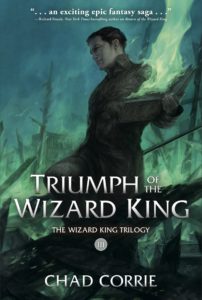
G.O: Is there a book or series that inspired you to become a writer?
C.C: Mickey and the Magic Cloak. It was one of the first books I remember my mother reading to me when I was real young. And she read it very often per my persistent requests. It didn’t immediately inspire me to write but did connect early on with that latent interest in the fantasy genre I’d carry with my for the rest of my life.
When it came to later being inspired to write myself I think that could be pegged, in part, to some Robert E. Howard stories I started reading in my early teens. And Stephen King would play some parts in developing ideas on what writing is and how I wanted to pursue being a writer, in general.
G.O: Do you have a method of balancing life between storytelling and creating opportunities for downtime?
C.C: Making sure you take breaks during the day to move and get away from the screen is an important thing to work into any routine where you’re in front of the computer for hours at a time. Besides that I seek to keep a regular work day in terms of so many hours working on something at a time. Sometimes I have to go a little over to get a certain project done, other times I might end things earlier in the day, but having a definite time to turn things off and walk away for the day is important. As is having some time in the morning before you start into it again to take a little breather and get some other “life things” done before heading back into the workflow and day.
G.O: What’s next for you? Do you have an upcoming project you’d like to promote?
C.C: Yes, quite a few. Besides The Wizard King Trilogy boxed set I have another novel in the works, The Shadow Regent, with Dark Horse for a March 2023 release. There’s also a graphic novel in production (Sons of Ashgard: Ill Met in Elmgard) with them that will be coming out in May. This would take place in a different world entirely. The other novel is something tied to the aftermath of The Wizard King Trilogy.
And then there is the short story collection I’m working on with another publisher. The idea is to have that release possibly late 2023. This too is tied to the world of Tralodren. You’ll be able to find and follow more information about all of these titles at my website and via social media over the ensuing months.
G.O: Do you consider the Wizard King saga wrapped up or do you have plans to return to that world one day?
C.C: Well, as I alluded to, aspects of the aftermath will carry over into one more (standalone) novel, but the world itself is meant to be explored for some time to come. It has many locales, ages of history, and plenty of events and tales to keep me busy for quite a while on that front—in prose, comic, and other mediums.
G.O: Thanks so much for taking the time to answer these questions. If people want to see more of your work or meet you in person, where can they find you?
C.C: Thanks for allowing me on your site! The best place to find me is at my website: chadcorrie.com. I’m also on Facebook, Twitter, and Instagram (@chadcorrie) and have a newsletter folks can subscribe to as well as four different podcasts I produce about Tralodren and other matters.
There’s also a website for Tralodren in particular: tralodren.com, along with some social media sites (FB, Instagram, Twitter): @tralodren

![[REVIEW] ‘MARAUDERS #1’ HOISTS ITS BLACK FLAG](https://geekd-out.com/wp-content/uploads/2019/10/MRDRSBNNR-150x150.jpg)
![[RETRO REVIEW] SUPERNATURAL – THE COMPLETE FOURTH SEASON](https://geekd-out.com/wp-content/uploads/2019/08/Supernatural4_FI-150x150.jpg)
